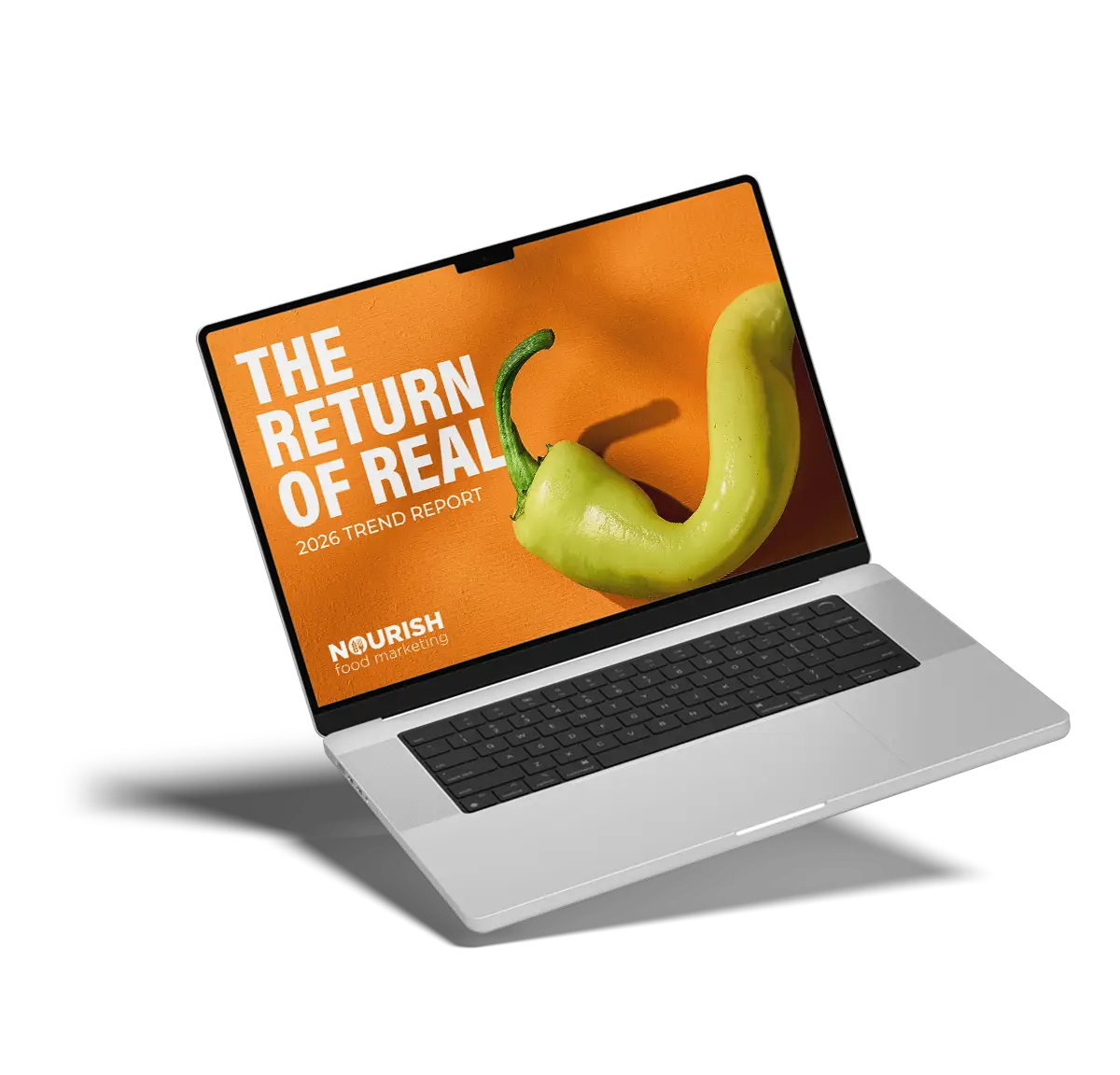Across the food spectrum, the vocabulary of health and wellness is evolving. We called it out in our 2019 Trend Report, and it's one of the most intriguing food trends to watch. It’s shifting away from established nutritional and condition-specific call-outs like ‘gluten-free’ and ‘heart healthy’. More and more we see product labelling that highlights ingredients with less tangible effects, like mental health and brain function. Consumers want to know, “what can it do for me?”
Younger consumers are anxious about anxiety
A recent Hartman Report shows that for the first time stress replaced being overweight as the top health condition managed by Americans. This despite average BMIs reaching all-time highs. The drivers of this shift are millennials and Gen Zs. These younger consumers link mental and physical health and seek to prevent future health conditions before they happen. As you can see in the graph below, searches on “anxiety” are on the rise, as well as for ways to deal with it.
Launches of food and beverage products with “mood” and “emotional health” claims are expected to grow, especially with the advent of CBD-infused foods. Trailblazing company New Age Beverages is set to launch Marley+CBD this spring in Oregon, Washington, Colorado, and Michigan. The new beverage is an add-on to the Marley’s Mellow Mood line-up of relaxation drinks.
CBD, a short-form for cannabidiol, is a non-psychoactive ingredient extracted from the cannabis plant. People ascribe all manner of benefits to CBD, including help with inflammation, pain relief, anxiety, and depression. As social stigma disappears, and if research backs up the hype, expect widespread adoption across the food and drink landscape. As food trends go, it's a controversial one, but there's no doubt it's going to be a game-changer.
In California, the long-time barometer and benchmark for all things cannabis-related, sales of cannabis-infused food and drink was a US$180 million business in 2017. Massive and continued growth is expected in the years ahead. When websites like Bloomberg, Forbes, and Investing News take note, you know something big is happening.
Edibles in Canada are legally still a bit further down the road, but when they arrive, there will be scientific research conducted to support (or debunk) potential claims. We’re already seeing derivatives of cannabis seeds, hemp seed oil and protein, appearing in food products sold in Canada.
Could high times for cannabis signal a new low for alcohol?
During the initial ‘feeling out’ period, consumer adoption will hinge on taste and the dose-response curve. Consumers already understand the ways alcohol impacts mood and function; they’ll want new products to mimic or at least approximate the effects of alcohol. But, there will be uncertainty, and consumers will be looking to manufacturers to educate them. Data from Vividata shows 81% of Canadians want cannabis packaging to specify effects on behaviour.
Although CBD-infused beer and wine is an obvious starting point, in the future, alcohol may no longer be the go-to mood-changing drink. Bruce Linton, CEO of Smith Falls, Ontario-based Canopy Growth Corporation foresees a whole new category of CBD and cannabis beverages. “A lot of people are just trying to make a beer with inputs of cannabis,” Linton says. “Where we want to take people is... to a new category. I don’t understand why we have an obligation to pirate a beverage called beer, which is intended to make us fat.” Could cannabis be the next superfood?
There’s a supplement for that
As the functional food market expands and mainstreams, expect to see more people putting powders into their smoothies, oatmeal, tea and more for specific health benefits. Healthy mix-ins will no longer be the exclusive domain of gym-goers. And, soon we’ll find adaptogens and functional mushroom powders on the shelf with protein powders. It’s part of a shift towards a natural approach to health derived from “real food” instead of bottles of pills and capsules. For example, last year, sales of food made with medicinal mushrooms skyrocketed, increasing between 200-800%, depending on the variety.
See how Four Sigmatic, purveyors of mushroom coffee, mushroom hot cacaos, and more, positions its powders to address mood-based need states like Revive, Achieve, Create, and Chill.
How can your business respond to this shift to Emotional Well-being?
If you’re a Manufacturer:
Does your product positioning support emotional, rather than physical well-being? Should you take more cues from successful health & beauty brands?
If you’re a Retailer:
With this shift from physical to emotional well-being, the line between Drug and Grocery channels will continue to blur. As shoppers look for products that support their emotional well-being, should you have more than a pharmacist or traditional dietitian on staff?
If you’re in Food Service:
The impact of cannabis legalization is predicted to shift food consumption from on-premise to home. Do you have delivery options in place?
To read our complete report on behavioural, social, and economic food trends, download your free copy of the Nourish Trend Report today.
